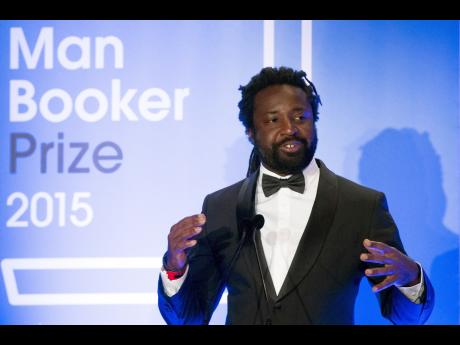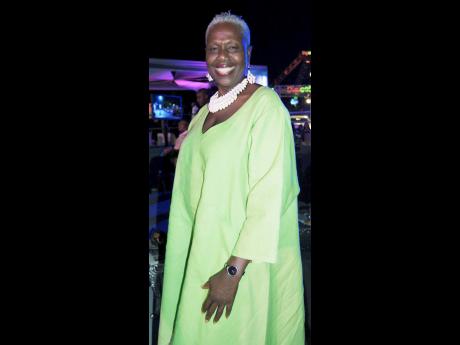Morris, Cooper weigh in on Man Booker Prize win
Jamaica's poet laureate Professor Emeritus Mervyn Morris has weighed in on Marlon James winning the 2015 Man Booker Prize for Fiction as a national source of pride and joy.
"It's something we can all rejoice in. It's a major achievement, and I think we must all be delighted that it has happened," Morris told Arts & Education via telephone from Barbados on Thursday. "He has, of course, been working at the craft for quite a while. This is his third book, and, by far, his longest and most ambitious," the poet laureate added.
A literary giant and cultural icon, Morris admitted that he was still in the process of reading A Brief History of Seven Killings, the 680-page novel which trumped five other submissions to win the prestigious award.
In an interview with the New York Times, James said he hoped the award would draw attention to the flourishing literary scene in his home country.
"There's this whole universe of really spunky creativity that's happening," he said. "I hope it brings more attention to what's coming out of Jamaica and the Caribbean," he is quoted as saying.
Another literary heavyweight sharing James' vision is Carolyn Cooper, professor of literary and cultural studies at the University of the West Indies, Mona. She sees the win as an indication that Jamaicans are developing an international profile as writers.
Having read A Brief History of Seven Killings in the capacity of chief judge at the recent BOCAS literary fest in Trinidad, where it also took top prize, Cooper is looking forward to a more leisurely re-reading.
WONDERFUL WIN
"I think it's absolutely wonderful that Marlon James' novel has won this distinguished prize. He's a great writer," she told Arts & Education on Tuesday.
Cooper also expressed the view that the book was a little overwritten and could have been much shorter, pointing out that the author, in his comments on the process of writing, admits to having felt lost at some point and a sense of not knowing where he was going, which is reflected in the final product.
"But I am happy that the judges have recognised the grand scope of the project, which looks at the assassination attempt of Marley and Jamaican culture in the '70s. It is true that a lot of it is very negative because of the politics of the time and the violence. The way in which the politicians criminalised the culture by giving the youth guns. You know, it is a bad period in Jamaican history, but we have to come to terms with our past," she declared.
Cooper was, however, optimistic about the global impact of the novel, again expressing reservations about some of its content.
"We have to understand its impact on the present, and I think the writer has this responsibility to the society to help us see ourselves, and I think this is what Marlon has consistently been doing in his work, and he has taken on a new canvass. As you know, HBO is going to turn it into a series, so already, Jamaican culture is going to get a big profile. I just think it's unfortunate that so much of it is the violence and negativity, but hopefully, some of the creativity of the period - what Marley represented, will also come out in that Marlon winning this prize - now will lend inspiration to a whole range of Jamaican writers," the professor declared.
NO HOLDS BARRED
"A raw, violent epic that uses the attempted assassination of Bob Marley in 1976 to explore Jamaican politics, gang wars, and drug trafficking," is how the New York Times in part describes A Brief History of Seven Killings. "The Booker judges praised Mr James' stylistic range and his unflinching exploration of violence, cronyism and corruption."
In fact, all reviews of the book suggest that it is not for the faint of heart, brimming as it does with shocking gang violence, swearing, graphic sex, drug crimes, but also lots of laughs.
Michael Wood, the chair of judges, said: "[It was] very exciting, very violent, full of swearing. It was a book we didn't actually have any difficulty deciding on. It was a unanimous decision, a little bit to our surprise."
Wood recalled someone telling him that they liked to give the Man Booker winning pieces to their mother to read and James' book might be a little difficult.
"My mother would not have got beyond the first few pages because of the swearing," he said. "Another reaction to people who say they don't want to read this kind of thing is 'it is very good for them to read it'."






